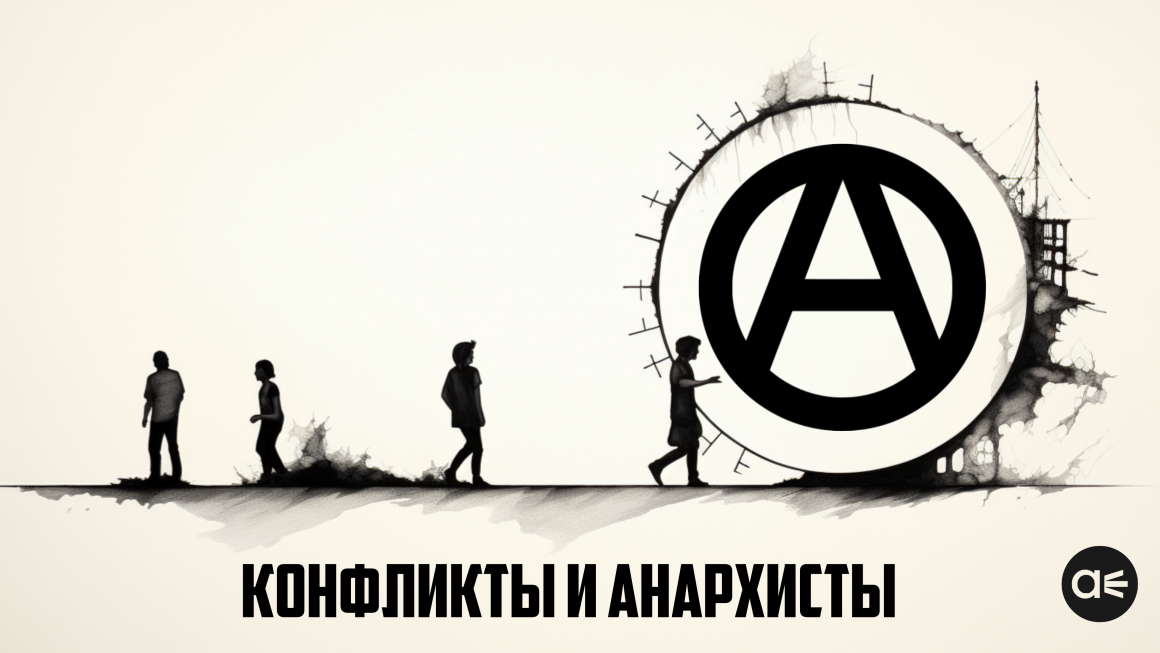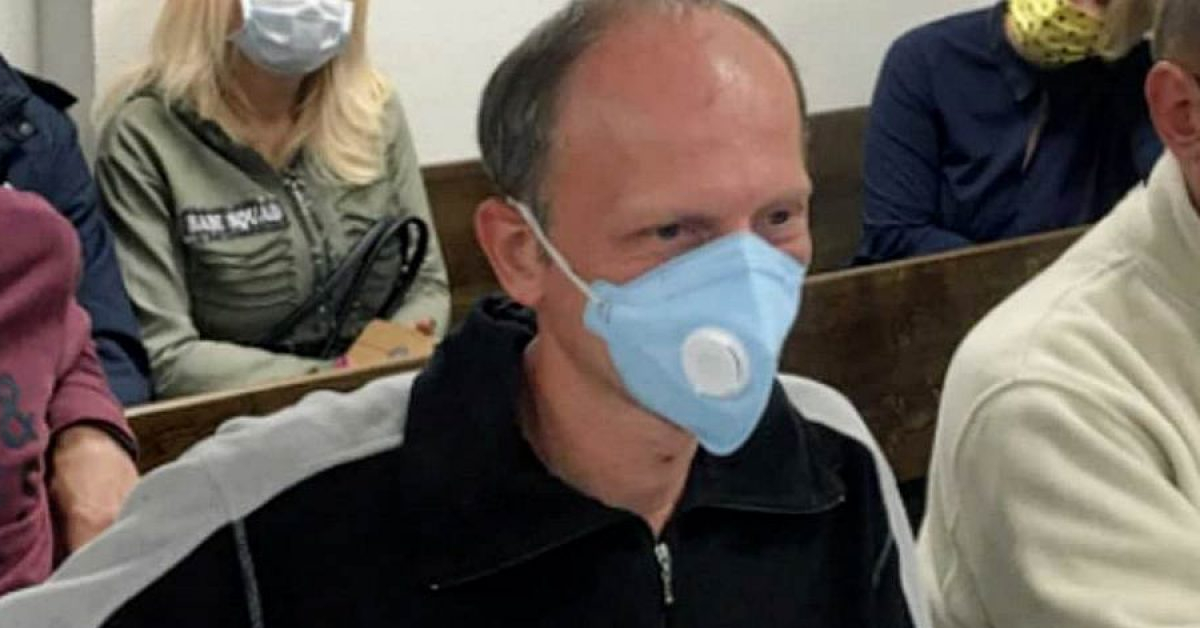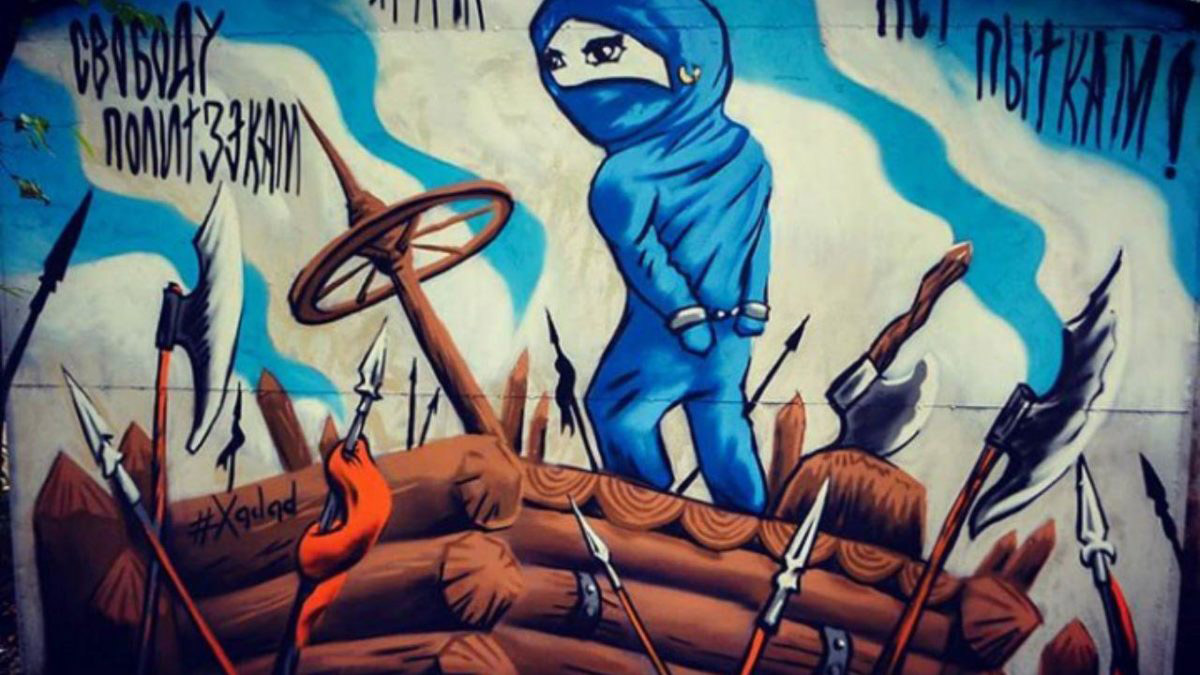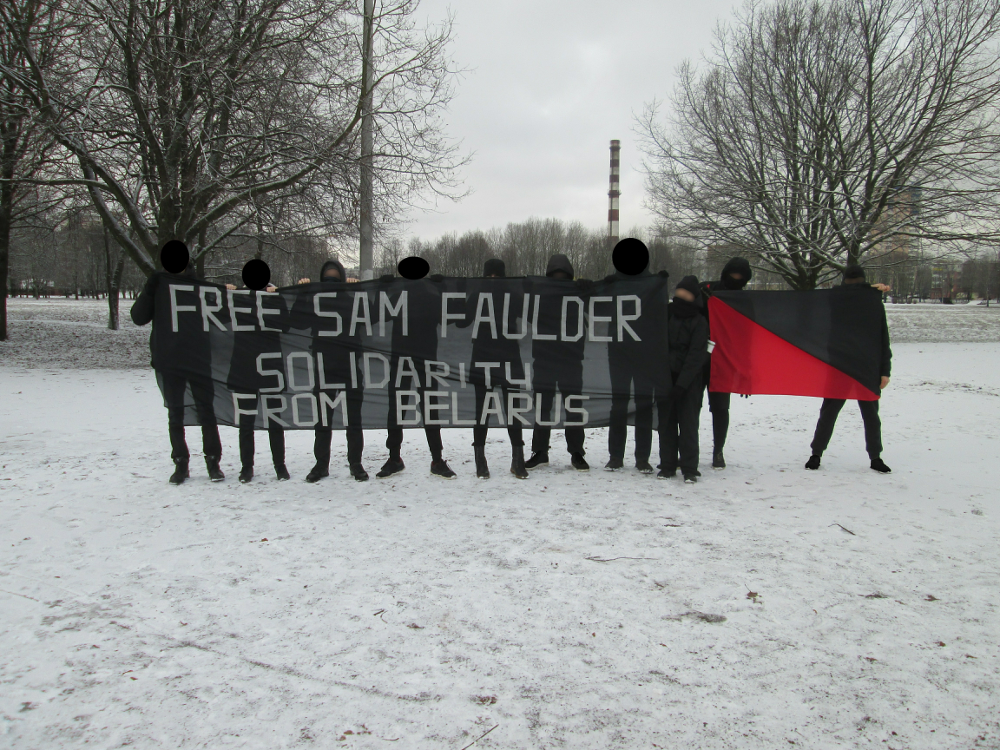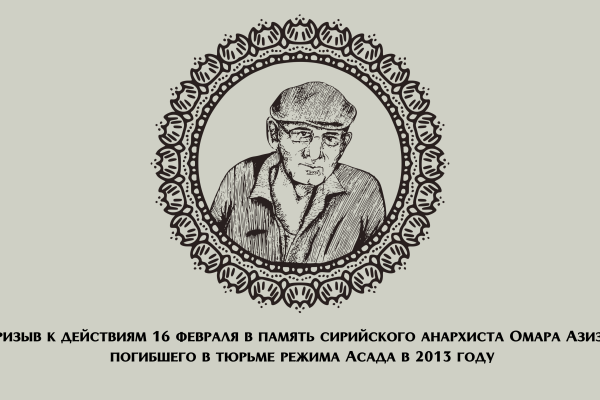We were prompted to write this critical text by a situation that happened recently in social networks. In brief: we were invited to an anarchist group, where there was a person X., who was responsible for some pretty big problems within the anarchist movement. As a result of a conversation about X. we were removed from the chat room because we were considered to be engaging in “policing” and “blackmail”.
The reaction was generally unsurprising, as there is a systematic problem within the anarchist community of avoiding questions of internal problem solving. Let’s try to understand why this happens and what can potentially be done about it.
Who is causing the problems here?
Whether we like it or not, the anarchist movement in Belarus, Russia, and Ukraine has shrunk considerably in recent years, somewhere because of state repression, and somewhere because of a lack of desire to develop the movement in any way. In such an atmosphere, some people believe that even the most immoral deeds can be turned a blind eye in the name of a dubious “unity”. At the same time, the destructiveness of problematic deeds for the movement itself is often ignored.
We will not attempt to deal with individual conflicts in which many have chosen to “sit out” the situation, but the tendency remains that part of the movement tolerates accusations of violence (including sexualized violence), theft, and deception of one’s own comrades. Such problems do not only exist among the anarchist movement. Violence and deception are also known to occur within the political milieu of the right and liberals. But it is for anarchism that honest treatment of each other and respect for comrades is the basis of the movement.
Among other things, as in the above experience, we often encounter situations where it is the person who raises the issue that becomes the subject of discussion and attack, not the issue itself. This behavior can be seen in both cases of sexualized violence and episodes of theft, and is a common response in modern society.
Obviously, this approach creates additional problems, which again part of the anarchist movement hopes to sit out and wait for the movement to become strong enough again to take to the streets and call for the overthrow of the regime. This approach is naive and may become one of the reasons for the complete collapse of the anarchist movement in the region.
We would also like to note that often the people who most loudly express their desire not to start “fighting” are often either people close to the problem behavior or not affected by the problem in any way. The simplest example is that it is men who most often try to shut up cases of sexualized violence against women in the movement. This dynamic reveals deep power issues within the movement, in which the people least affected by injustice play just about the most important role in defining what injustice is and what a just resolution to conflict might look like.
Any postponement of major conflict and attempts to forget some problems without consequences for the people who created those problems is likely to lead to even bigger problems in the future. Current behavior within the abstract anarchist movement is sometimes a strange mixture of indifference, violence, and exploitation. How revolutionary potential can develop in such an atmosphere remains a mystery to us.
By proclaiming ACAB we successfully dismiss any institutions of power, but in doing so we find ourselves in a trap: while etatists can go to the police/militia and try to get justice, justice is often harder to find in an anarchist environment than in a police station…
From our point of view, it is the inability to resolve conflicts, rather than the pointing out of those conflicts, that catastrophically undermines confidence in anarchism as an alternative to the state.
What can be the strategy in such a situation? Clearly, there is hardly a universal mold for such a complex issue, but there are a few steps that can strengthen the anarchist community.
- Define your community/movement. Today, anyone can call themselves an anarchist on the internet. Whether he or she becomes part of the movement or is just a supporter of some political views. It is worth accepting the fact that anarchism, like many other political ideas, attracts many people with “heavy” baggage. We are often not responsible for the actions of these people if they are not in any way part of or interacting with our community.
Defining community is a key point for using most conflict resolution tools from simple arbitration to restorative and transformative justice – if a person does not consider themselves part of a community and is simply willing to change their social circle if problems are created, it may not be possible to resolve problems with that person. The need to define community is related, among other things, to the dynamics of modern society – our movement exists mainly in an urban environment in which moving from place to place and changing social circle has become an inevitable reality for the majority of the population.
- Reputation plays a role. Our actions often speak louder about our views than our public declaration of them. We don’t need to go far for examples: how many “anti-fascists” are there in Belarus and Russia who are ready to support the fascist regimes of Putin and Lukashenko? How many “fighters” for women’s rights are there in our region who only want to strengthen patriarchy? In such a world, it is often important and useful to look into a person’s/organization’s past to better understand possible behavior. In such a case, using trivial reputations to form bonds of trust can help anarchists build camaraderie on a scale larger than a small community where everyone knows each other.
In addition to individual reputation, group reputation can help build trust within a movement. If a collective/organization has been doing some kind of work for many years without major problems, it is likely that the organization can be trusted. Given that the anarchist movement often remains anonymous due to political repression, utilizing a collective reputation can simplify the path to building an international movement.
- Don’t avoid conflict/take accusations seriously. This does not mean that if someone writes to you about a problem you immediately become the main driver of the resolution of the situation. Ask other comrades about the problem, what has already been done in the context of this conflict and if there are any steps to further resolve it. Be prepared to help in a situation, but don’t forget the definition of community. If the conflict exists outside of your own community and the political environment in which you are engaged in activism, there is probably no point in trying to resolve the situation.
Be prepared to make a decision for yourself or your organization based on what you know. Refusing to engage with a particular collective is just as political as continuing to work despite what is known, and can be a strong motivator for conflict resolution. It’s important to realize that this is an approach worth using only if nothing else works. Yes, such decisions may complicate further political struggles, but no one said that the path to liberation would be easy.
- It is worth accepting the fact that not all anarchists are people of integrity. Often activists and supporters of the movement come from an environment where relations between people are not based on solidarity, but on constant attempts to deceive in order to survive. We can give everyone who comes a chance, but this does not mean that the doors of the anarchist community will remain open until the person stops calling themselves an anarchist
- Be prepared to exclude people. Pretty simple mechanism in case people who use violence, theft, and manipulation to achieve their own goals aren’t willing to change. It’s hard to imagine the effort that has gone into trying to positively influence problematic people. Sometimes closing the door is the only way out of the situation. In such a case, again, defining the community is critical to effectively exclude an individual. Be prepared to follow the calls of other comrades and groups to exclude people if there is no possibility of resolving the conflict. Who to trust in such situations – see the point about reputation within the anarchist community.
We have given just a few examples that can build trust within the anarchist movement and make it more secure from violence by individual supporters of anarchism. Building a political movement is a complex task and we often find ourselves confronted with questions that at first glance have little to do with our main struggle against the state and capitalism. But if we look deeper, our practices of interaction within the movement define who we are not only to ourselves, but also to the people we are trying to agitate to join our struggle.
